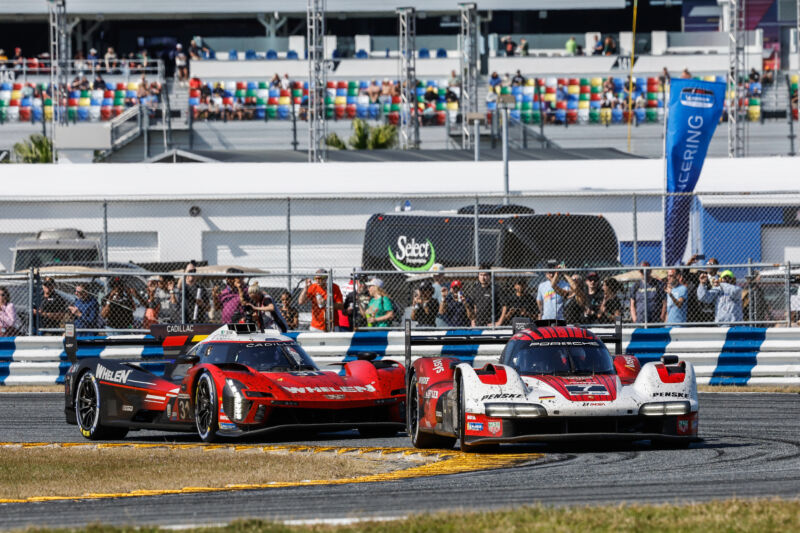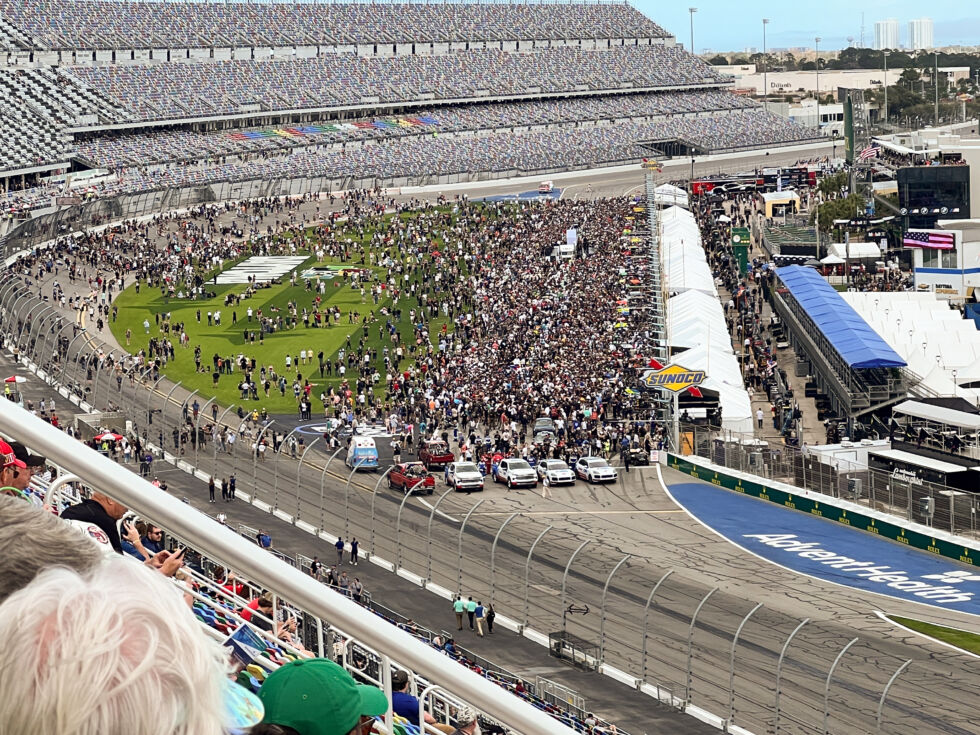actually 23 hours and 58 minutes this time —
The around-the-clock race marked the start of the North American racing calendar.

Enlarge / The current crop of GTP hybrid prototypes look wonderful, thanks to rules that cap the amount of downforce they can generate in favor of more dramatic styling.
Porsche Motorsport
DAYTONA BEACH, Fla.—Near-summer temperatures greeted a record crowd at the Daytona International Speedway in Florida last weekend. At the end of each January, the track hosts the Rolex 24, an around-the-clock endurance race that’s now as high-profile as it has ever been during the event’s 62-year history.
Between the packed crowd and the 59-car grid, there’s proof that sports car racing is in good shape. Some of that might be attributable to Drive to Survive‘s rising tide lifting a bunch of non-F1 boats, but there’s more to the story than just a resurgent interest in motorsport. The dramatic-looking GTP prototypes have a lot to do with it—powerful hybrid racing cars from Acura, BMW, Cadillac, and Porsche are bringing in the fans and, in some cases, some pretty famous drivers with F1 or IndyCar wins on their resumes.
But IMSA and the Rolex 24 is about more than just the top class of cars; in addition to the GTP hybrids, the field also comprised the very competitive pro-am LMP2 prototype class and a pair of classes (one for professional teams, another for pro-ams) for production-based machines built to a global set of rules, called GT3. (To be slightly confusing, in IMSA, those classes are known as GTD-Pro and GTD. More on sports car racing being needlessly confusing later.)

Enlarge / The crowd for the 2024 Rolex 24 was larger even than last year. This is the pre-race grid walk, which I chose to watch from afar.
Jonathan Gitlin
There was even a Hollywood megastar in attendance, as the Jerry Bruckheimer-produced, Joseph Kosinski-directed racing movie starring Brad Pitt was at the track filming scenes for the start of that movie.
GTP finds its groove
Last year’s Rolex 24 was the debut of the new GTP cars, and they didn’t have an entirely trouble-free race. These cars are some of the most complicated sports prototypes to turn a wheel due to hybrid systems, and during the 2023 race, two of the entrants required lengthy stops to replace their hybrid batteries. Those teething troubles are a thing of the past, and over the last 12 months, the cars have found an awful lot more speed, with most of the 10-car class breaking Daytona’s lap record during qualifying.
Most of that new speed has come from the teams’ familiarity with the cars after a season of racing but also from a year of software development. Only Porsche’s 963 has had any mechanical upgrades during the off-season. “You… will not notice anything on the outside shell of the car,” explained Urs Kuratle, Porsche Motorsport’s director of factory racing. “So the aerodynamics, all [those] things, they look the same… Sometimes it’s a material change, where a fitting used to be out of aluminum and due to reliability reasons we change to steel or things like this. There are minor details like this.”
-
This year, the Wayne Taylor Racing team had not one but two ARX-06s. I expected the cars to be front-runners, but a late BoP change added another 40 kg.
Jonathan Gitlin
-
The Cadillacs are fan favorites because of their loud, naturally aspirated V8s. I think the car looks better than the other GTP cars, too.
Jonathan Gitlin
-
Porsche’s 963 is the only GTP car that has had any changes since last year, but they’re all under the bodywork.
Jonathan Gitlin
-
Porsche is the only manufacturer to start selling customer GTP cars so far. The one on the left is the Proton Competition Mustang Sampling car; the one on the right belongs to JDC-Miller MotorSports.
Jonathan Gitlin
GTP cars aren’t as fast or even as powerful as an F1 single-seater, but the driver workload from inside the cockpit may be even higher. At last year’s season-ending Petit Le Mans, former F1 champion Jenson Button—then making a guest appearance in the privateer-run JDC Miller Motorsport Porsche 963—came away with a newfound respect for how many different systems could be tweaked from the steering wheel.